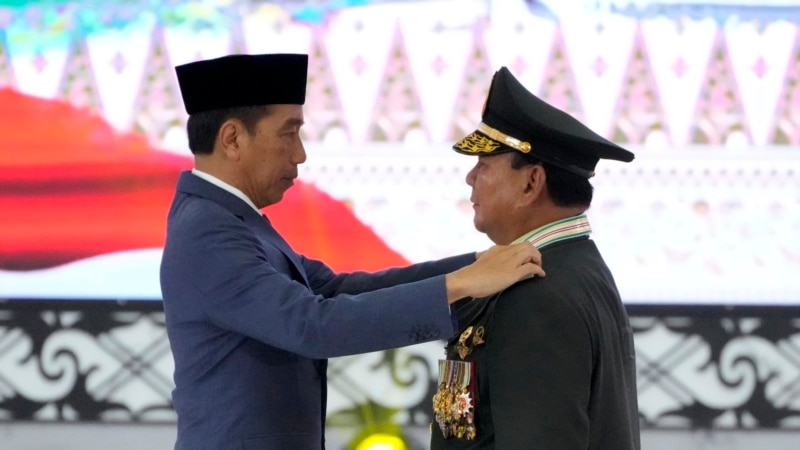The White House said it looks forward to working with the incoming Indonesian administration but stopped short of congratulating Prabowo Subianto on his apparent victory in Indonesia’s presidential election last month.
“We congratulate the Indonesian people on a successful election. The president looks forward to early engagement with the new administration and strengthening our cooperation on what is already a strategic partnership,” said John Kirby, White House National Security Council spokesperson, in response to VOA’s question during the White House briefing Tuesday.
Kirby said the administration is “closely following the ongoing vote count” that shows Prabowo commanding a significant lead. With almost 90% of the votes counted, Prabowo holds almost 59% of the more than 150 million votes in the February 14 election.
“We’ve had an excellent cooperation with him since the time he was defense minister, and if he is in fact finally elected, then we look forward to continuing that relationship,” Kirby said.
Official results are not due until later in March, but Prabowo has claimed victory, and several countries have extended their congratulations, including China, Australia, the United Kingdom and others.
Alleged human rights violation
Currently serving as Indonesia’s defense minister, Prabowo has a long track record of alleged human rights violations, including the abduction and torture of activists during the 1998 ouster of his then father-in-law, former President Suharto, who ruled Indonesia for 32 years.
Prabowo’s victory is widely attributed to the support of the popular outgoing president, Joko Widodo, who last week awarded Prabowo with an honorary four-star general rank. The president’s son, Gibran Rakabuming Raka, is Prabowo’s running mate, fueling accusations of nepotism.
“Prabowo’s election creates not only a bad precedent in the effort to prosecute state crimes committed by the previous government,” said Gufron Mabruri, executive director of Indonesian human rights group Imparsial. “It will also weaken enforcement of human rights in the future.”
Until 2020, Prabowo was banned from entering the U.S. due to alleged human rights violations, but he has since visited as defense minister, invited by both the Trump and Biden administrations.
Asked about potential democratic backsliding in Indonesia, Kirby said the administration will “never back away from our concerns about the need for human rights, civil rights, and all the values of democratic institutions,” and that President Joe Biden “absolutely will not shy away” about expressing such concerns.
As the United States and China compete for regional influence, Prabowo aims to continue Indonesia’s nonaligned foreign policy that has allowed Jakarta to reap massive investments from Beijing while maintaining security ties with Washington.
In Washington, concerns about Indonesia veering too close to Beijing provide a geostrategic backdrop to U.S.-Indonesia ties, said Andreyka Natalegawa, associate fellow at the Center for Strategic and International Studies.
“At the same time, these broader geopolitical factors are also just strengthened by the fact that the U.S.-Indonesia partnership is strong and solid,” Natalegawa told VOA. He added that given the continuities with the outgoing Indonesian government, Washington should be comfortable in working with the new incoming administration.
There have been sporadic protests in Jakarta alleging election interference, but official results are expected to declare Prabowo as the country’s next leader in the coming weeks.

